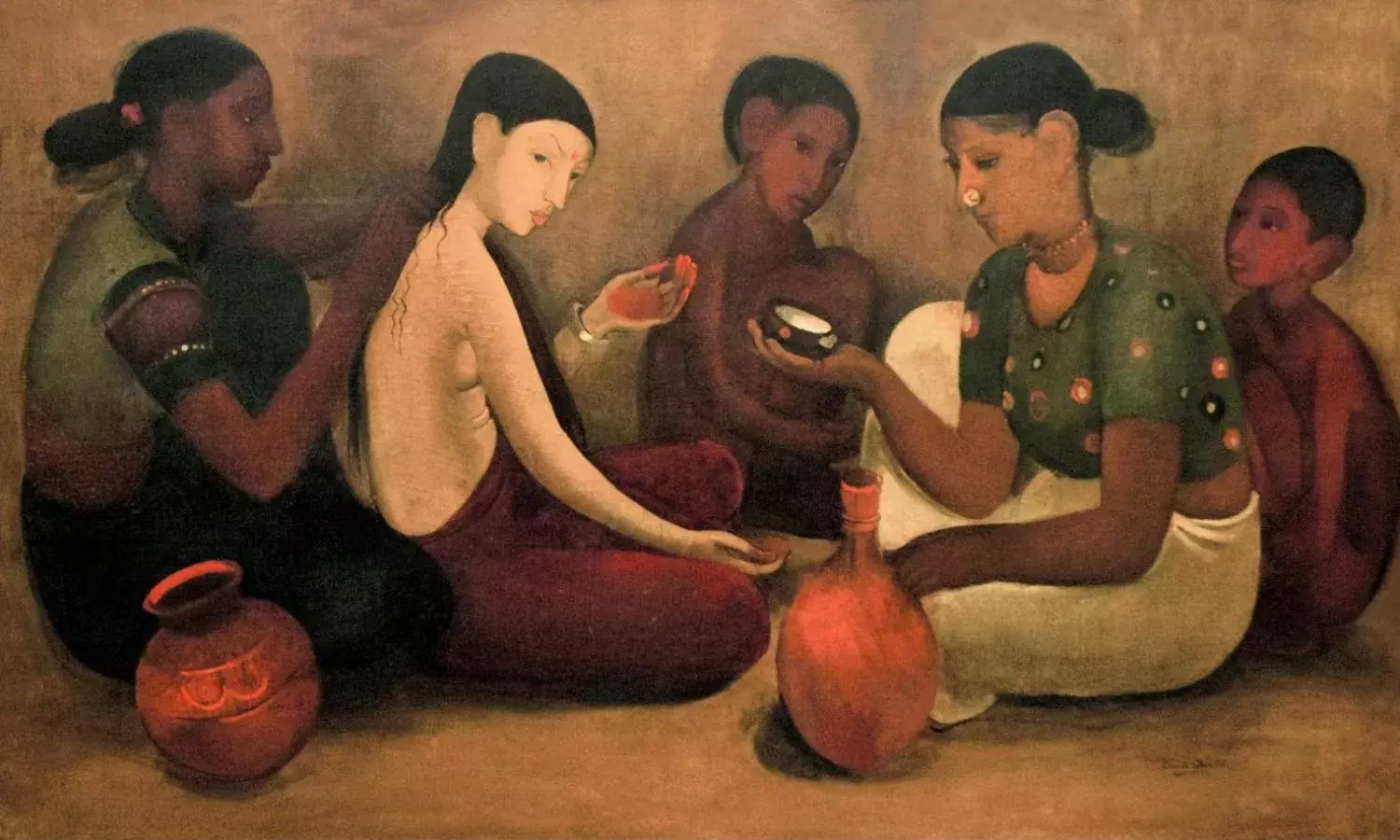Locked Inside, Women Long for Happy Bleeding
Not that I'm ashamed, but'

Megha has switched to old rags to manage her periods so she won’t have to ask her father to buy sanitary pads. Only he goes out shopping for groceries and household items in view of the pandemic and lockdown.
Prior to the lockdown, the teenage girl, who hails from a small city in Bihar, had fairly easy access to the pad. After school she would go to the tandem chemist, purchase the cheapest packet of pads and hide them inside her school bag.
“Nobody even uses the word ‘period’ or ‘pads’ in my house, I don’t know how my father would react if I asked him to buy pads. I could never do it! Not that I’m ashamed, but talking to my father about it would obviously be very embarrassing. It’s common, right? No girl does that,” says Megha.
Not for the first time, untold numbers of women stand deprived of rudimentary access to sanitary napkins, tampons, clean water and several other hygiene products.
While staying indoors, many women also struggle to keep their periods hidden from male family members or other relatives to avoid being prey to embarrassing questions and period myths.
Sheetal, a Delhi University student, says “Periods have always been frustrating for me but what irks me most is the ‘unaware look’ on my father and brothers’ faces.”
From feeling irritable to angry, accompanied by anxiety and depression, to crying their eyes out, around 40% of women report a moderate to severe rollercoaster of emotions due to premenstrual stress.
“Sometimes I just wish to be isolated, at other times I want everyone to pamper me, to understand me and my fluctuating mood. But there is little to no understanding in fathers about periods. Just having access to menstrual products doesn’t ensure ‘happy bleeding’,” Sheetal adds.
The father is often an absent figure in a young girl’s journey to womanhood. Divya Unny, who directed the short film Her First Time, found in her research that more than 90% of Indian fathers are either oblivious or unaware of how to approach their daughter’s period.
The massive sanctioned ignorance is also a reason for boys’ uneasiness among girls. It is left to mothers to discuss puberty with their daughters, with the entire subject turned into a secret discussion.
“My daughter and I are forced to stay in a corner of our single room as my husband believes that women become impure during their periods. He even cooks his own meal,” says Sushma, who is in her late thirties.
Earlier her husband would go out for work and it wasn’t much of a problem. “Since the lockdown, the time of periods has become a tough challenge as he stays at home throughout the day,” she adds.
Sushma believes she cannot make her husband understand as it would be shameful to talk about her period outright. So she is just hoping for him to get back to work.
In the meantime, for devout Muslims, fasting and offering prayers becomes mandatory after attaining puberty. However, the Qur’an exempts menstruating women from obligatory daily prayers or fasting during Ramzan.
Islamic scripture tries to give menstruating women respite from religious duties as it is a difficult and painful time for them. Unfortunately, this comes with its own set of problems as care for women is turned into a series of preventions.
Nisha Khatun recounts her experience in the workplace where her male colleagues would often ask her why she wasn’t fasting. “I never liked this, so in order to avoid being asked such questions I would skip having my lunch at the office.”
But the lockdown hasn’t made the situation any better for the 43 year old, who works for a cloth manufacturing company in Gurgaon.
“It’s a Ramzaan month and I knew like me, my daughters would also not be able to fast every day due to periods. But we live in a joint family and my brother-in-law or sometimes my cousins would ask my daughters the same question: Why aren’t you fasting?
“So they would always try to hide away from male members to avoid being awkwardly stared at or having to lie about menstruation,” says Nisha.
She thinks there’s a sense of discomfort when women come across such questions, because of the way they are being asked.



